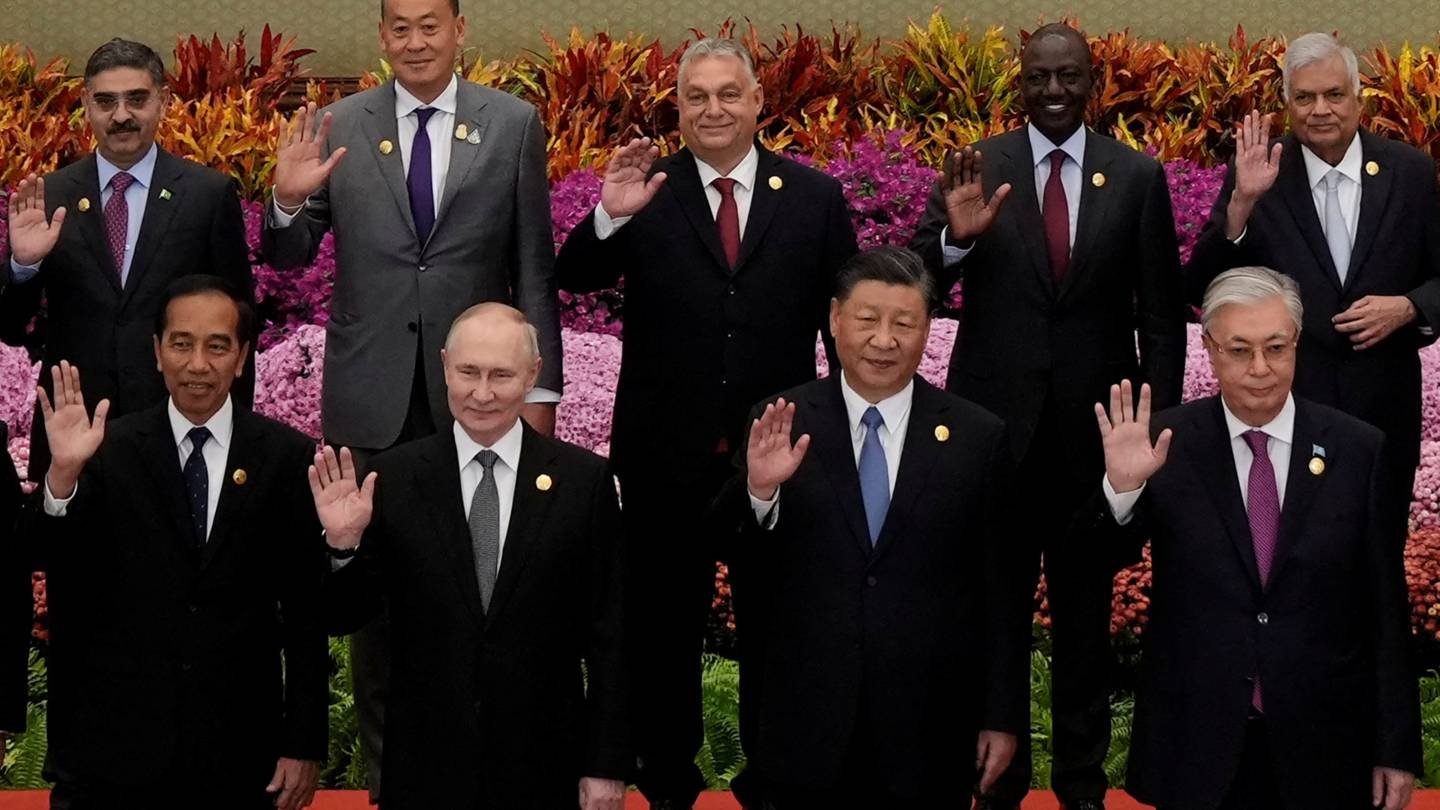Russian President Putin’s Meeting with Chinese President Xi Jinping and Its
Global Implications
Russian President Vladimir Putin’s meeting with his Chinese counterpart, Xi Jinping, in Beijing holds great significance in the realm of global politics. The two leaders are coming together to solidify their strategic partnership, which they’ve famously described as having “no limits.” This partnership is taking shape against the backdrop of a host of international issues, including the ongoing Ukraine conflict and the escalating Israel-Hamas war. In this essay, we will examine the various dimensions of this meeting, the context in which it is taking place, and its implications on the international stage.
The Context of the Meeting
The meeting between Putin and Xi comes at a time when the world is grappling with multiple geopolitical challenges.
Ukraine Conflict
The ongoing Ukraine conflict, which began with Russia’s annexation of Crimea in 2014, continues to be a point of contention in international relations. The fact that this meeting is taking place is noteworthy, given that President Putin is facing an arrest warrant issued by the International Criminal Court for alleged crimes related to the Ukraine conflict. The fact that China is not an ICC member underscores the geopolitical complexities of this situation.
The Israel-Hamas Conflict
Simultaneously, the Israel-Hamas conflict is escalating. The international community, including Russia and China as permanent members of the UN Security Council, views this conflict as a critical issue. The leaders are expected to discuss this conflict, particularly as U.S. President Joe Biden is visiting Israel, which adds another layer of complexity to the situation.
The Belt and Road Initiative (BRI)
Chinese President Xi Jinping is hosting the summit and has invited global leaders to commemorate the 10th anniversary of the Belt and Road Initiative (BRI).
The BRI’s Origins and Goals
The BRI, launched by President Xi, is an ambitious infrastructure project with far-reaching goals. It aims to strengthen alliances between China and nations in Asia, Africa, and Latin America. The project encompasses a wide range of initiatives, from traditional infrastructure projects like dams to high-tech endeavors, such as digital finance and e-commerce platforms.
China’s Vision for a Multipolar World Order
One of the overarching aims of the BRI is to challenge the traditional world order, which has been dominated by Western powers, particularly the United States. China’s vision for a multipolar world order seeks to provide more agency to countries in the global South. This vision is a departure from the U.S.-led unipolar world order and is seen as an effort to rebalance global power dynamics.
The Russia-China Partnership
President Putin’s participation in the BRI Summit underscores the evolving strategic partnership between Russia and China.
The “No-Limits” Partnership
The declaration of a “no-limits” partnership between Russia and China during the Beijing Winter Olympics in 2022 was a significant development. It came just days before Russia’s controversial move to send tens of thousands of troops into Ukraine. This partnership has raised eyebrows in the international community and has led to questions about its implications for global geopolitics.
Shared Stance on the Israel-Hamas Conflict
Both Russia and China, as permanent members of the UN Security Council, have expressed their belief that the fundamental issue at the heart of the Israel-Hamas conflict is the lack of justice for the Palestinians. Russia has also condemned violence against both Jews and Palestinians. However, President Putin has repeatedly criticized the United States for what he perceives as a flawed approach to the conflict.
Putin’s Praise for the BRI and Invitation for Investment
During the BRI Summit, President Putin extended his appreciation to President Xi for the Belt and Road Initiative and invited global investment in the Northern Sea route.
The Northern Sea Route
The Northern Sea Route, a key aspect of Russia’s strategic and economic interests, is set to become a year-round navigation route for ice-class cargo ships starting next year. Russia is actively promoting this route and inviting interested states to participate directly in its development. This initiative holds significant economic and geopolitical implications.
Russia’s Delegation and Key Figures
President Putin’s delegation included high-ranking Russian figures such as Foreign Minister Sergei Lavrov, Deputy Prime Minister Alexander Novak, and Deputy Prime Minister Dmitry Chernyshenko, among others. The composition of this delegation indicates the importance of this meeting and its potential outcomes.
The meeting between Russian President Vladimir Putin and Chinese President Xi Jinping in Beijing is occurring in a complex geopolitical environment. It highlights the evolving dynamics of the Russia-China partnership, which has been described as having “no limits.” The context includes the ongoing Ukraine conflict, the Israel-Hamas conflict, and the commemoration of the Belt and Road Initiative’s 10th anniversary. The partnership’s potential implications for the international order, the promotion of a multipolar world, and economic cooperation, particularly regarding the Northern Sea Route, are all significant factors in this meeting. As these leaders come together to discuss pressing global issues, the world watches closely, mindful of the potential consequences for global geopolitics.





